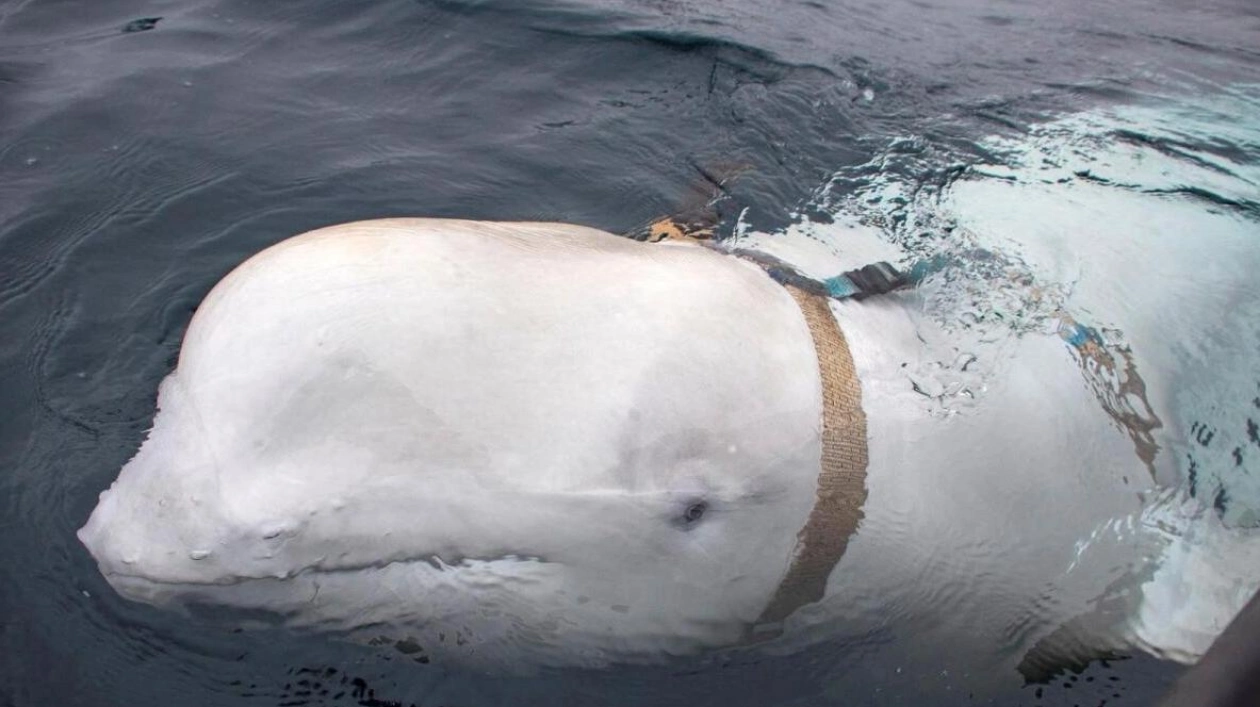Norwegian police announced on Monday that they do not suspect foul play in the death of a beluga whale, whose distinctive harness had raised suspicions that it had been trained by Russia for espionage. The whale, affectionately nicknamed 'Hvaldimir'—a play on the Norwegian word for whale ('hval') and its alleged connection to Moscow—first surfaced off the coast of Norway's far-northern Finnmark region in 2019. Quickly gaining fame in Norway, Hvaldimir was discovered dead on August 31 in a bay along the country's southwestern coast.
Last week, animal rights organizations NOAH and One Whale alleged that the whale had been shot and filed a police report. According to the World Wildlife Fund (WWF), belugas typically live up to 35 years, making Hvaldimir, who was estimated to be between 15 and 20 years old, relatively young. The Norwegian Veterinary Institute performed an autopsy, and police stated that the preliminary report found no evidence of 'human activity' contributing to Hvaldimir's death. They suggested that the beluga may have died of starvation and announced they would not pursue an investigation.
'There is nothing in the autopsy that indicates that Hvaldimir was shot,' said police official Amund Preede Revheim in a statement. He noted that the whale had 'totally superficial' injuries, one of which was slightly deeper but did not affect any vital organs and was not fatal. Police did not specify a cause of death but mentioned that a 14-inch long, three-centimeter wide stick was found lodged in Hvaldimir's mouth. 'The autopsy revealed that his stomach was empty. In addition, most of his organs were deteriorated,' Revheim added.
Regina Crosby Haug, the head of One Whale, told AFP last week that she observed 'multiple bullet wounds around his body' when she bid farewell to Hvaldimir at the Veterinary Institute. One Whale and NOAH had previously published photographs purporting to show bullet holes on the whale's blood-streaked body. NOAH expressed dissatisfaction with the police statement, saying it 'raised more questions than it answered,' and offered a 50,000-kroner ($4,610) reward for information on the whale's cause of death.
When Hvaldimir was initially found in 2019, Norwegian marine biologists removed a man-made harness fitted with a mount for an action camera and bearing the words 'Equipment St. Petersburg' printed on the plastic clasps. Norwegian officials speculated that the whale might have escaped from an enclosure and been trained by the Russian navy, as it seemed accustomed to human interaction. Moscow has never officially responded to claims that the whale could have been a 'Russian spy.'






